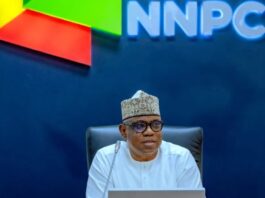Unlocking Private Capital to Power Nigeria’s Renewable Energy Future
CHIGOZIE AMADI
Nigeria’s energy deficit is quite evident; over 84 million Nigerians live without access to electricity, while countless others rely daily on diesel and petrol generators due to unreliable electricity supply and grid instability. While the cost of powering these generators annually is quite significant, they also pollute the environment and pose a threat to human health, stifling productivity. Yet, the country is blessed with abundant renewable resources (especially solar) that stand as a viable means to addressing Nigeria’s energy crisis but remain underutilized. The missing link is financing.
Estimates suggest that Nigeria needs around $9 to $10 billion annually until 2030 to achieve universal electricity access under its Energy Transition Plan. Clearly, public funds and donor contributions alone cannot meet this need. The key lies in unlocking private capital from commercial banks, institutional investors, and other financiers. To attract this much needed investment, several priorities stand out;
First, it is important to de-risk the renewable energy sector. Investors are naturally cautious and in Nigeria, there are concerns about currency volatility, unclear regulations, and repayment challenges. Innovative measures such as guarantees, blended finance, and insurance products can help share risks, giving investors greater confidence to participate.
Second, there is the need to bring forward more bankable projects. Many renewable energy ideas stall because they lack solid financial structures, credible customers, or regulatory backing. Renewable energy project developers must be supported to prepare projects in ways that meet investor requirements and ensure long-term viability.
Third, we have to design tailored financial tools for Nigeria’s market. Renewable energy projects are not like conventional businesses in that they usually require patient capital which means longer repayment periods and flexible structures. Local financial institutions should also create products such as ‘pay-as-you-go’ or ‘lease-to-own’ models that reflect how renewable energy projects actually generate income.
In addition, we need stronger policy and regulatory frameworks. Streamlined approvals, enforceable contracts, predictable tariffs, and better coordination among regulators can make Nigeria a far more attractive destination for private investment.
Finally, climate finance should be leveraged. Instruments such as green bonds, sukuks, and carbon markets represent an untapped pool of funding. When combined with private capital, these tools can significantly accelerate renewable energy expansion.
The future of Nigeria’s renewable energy sector depends not only on technology but also on finance. By reducing risks, strengthening policies, and being innovative in our financial design, the country can unlock billions in private investment. The prize is enormous; we will have affordable and reliable energy for households and businesses, reduced dependence on fossil fuels, and a cleaner, more sustainable economy. The path forward is clear, if only we take it.








